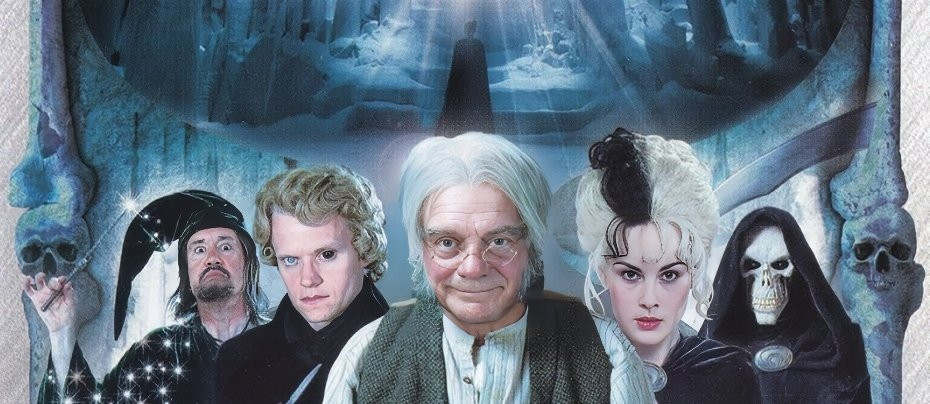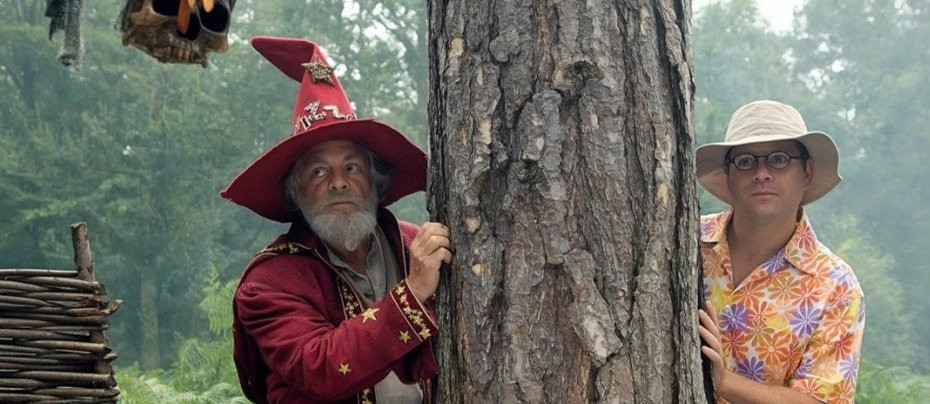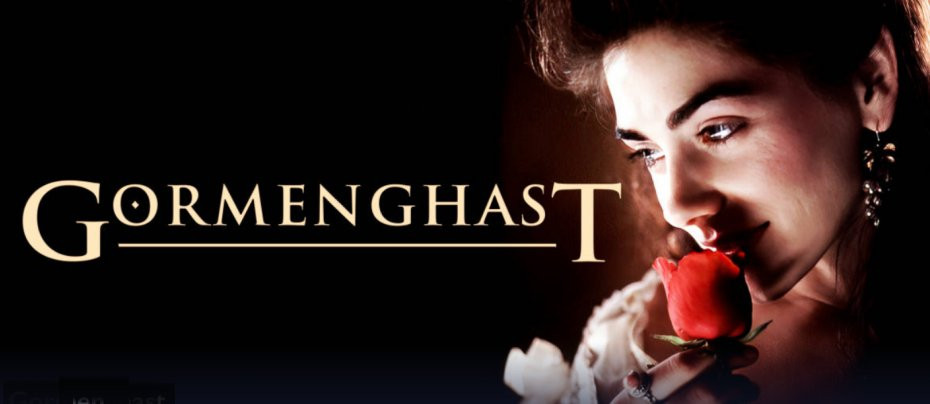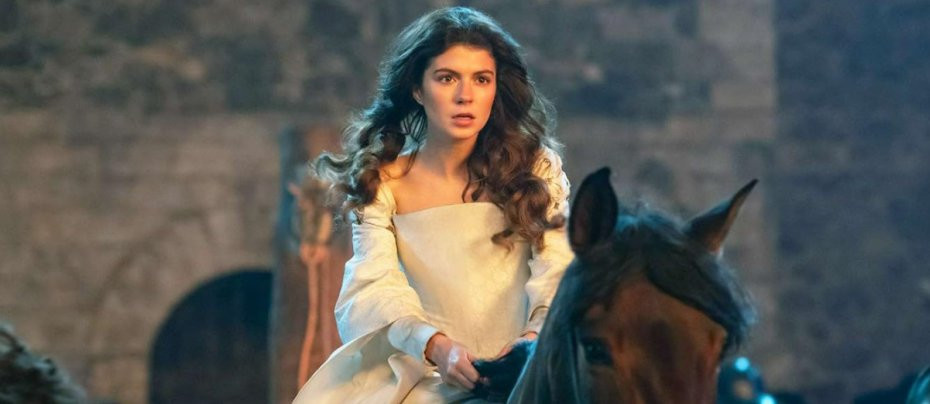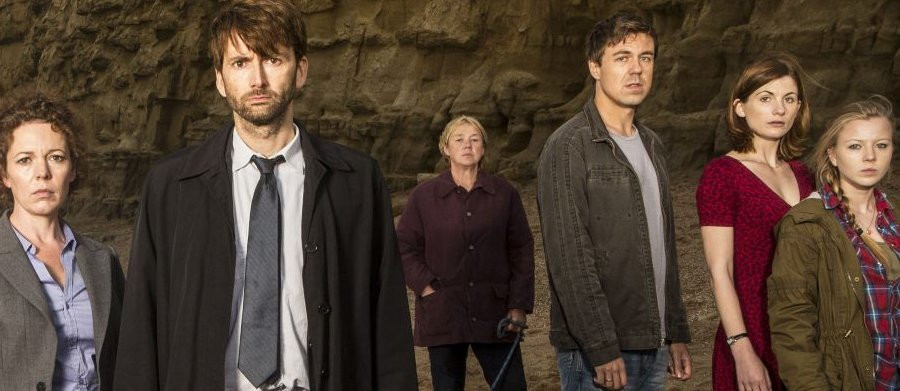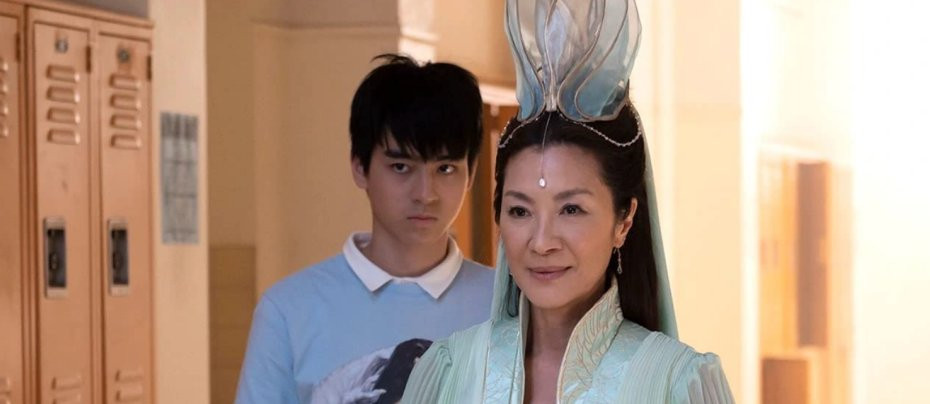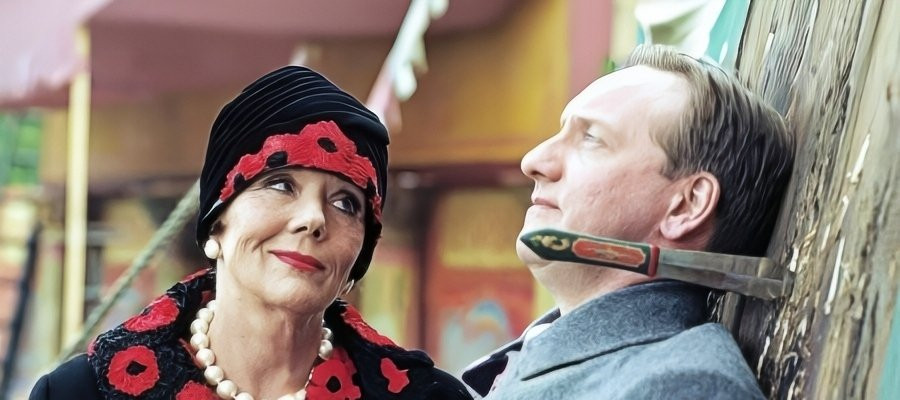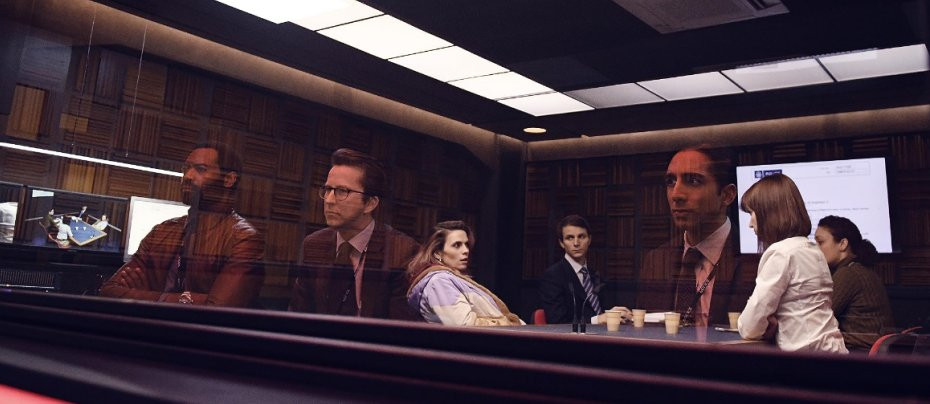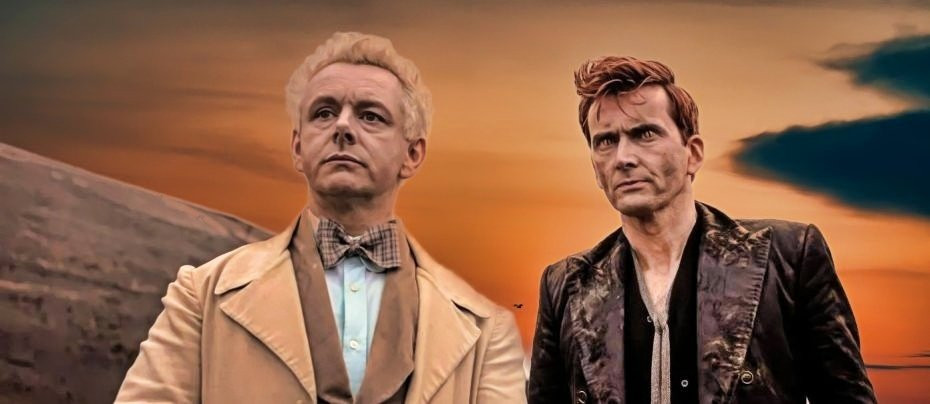
Good Omens - Season 2
‘While it doesn't reach the heights of the first series, Good Omens 2 is a welcome return’
Good Omens 2 (2023) review by Daniel Tessier
In 1990, Good Omens, the novel by Neil Gaiman and Terry Pratchett, was published. It took until 2019, four year's after Pratchett's death, for the book to be translated to television. It was, naturally, a huge hit for its production companies Narrativia, Amazon and the BBC, and while it was only commissioned as a one-off, limited series, it seemed a fair bet that it would be renewed for a second. Of course, in the meantime Covid happened, staggering everything, and the second series wasn't commissioned until 2021, with production being delayed as well. However, on 28 July 2023 the second series finally arrived in one miraculous manifestation on Amazon Prime.
Fans of the original books have long been aware that Gaiman and Pratchett had plotted out a sequel, provisionally titled 668: The Neighbour of the Beast, which never got as far as a first draft, partly because Gaiman got all successful and moved to the United States. Although elements of the sequel made it into the first series (which is quite different from the original novel in many respects), it's surprising to learn that the second series features virtually nothing from it. Should a third series happen, the main storyline will be that of the unfinished sequel, while Good Omens 2 is an entirely new story, bridging the gap between the book and the book-that-never-was.
This perhaps explains why Good Omens 2 feels so distinctly different than the first series. It is far smaller in scope than the apocalyptic crisis of the first story, although no less ambitious in its ultimate consequences. Another big reason for the difference is that Gaiman co-wrote this series with John Finnemore, best known as writer and star of radio comedies Cabin Fever and John Finnemore's Souvenir Programme, who brings his own style and sensibilities to the script. Plus, the second series focuses even more closely on its central duo, the imperfect angel Aziraphale and the lapsed demon Crowley, than the first. This is hardly a surprise; the performance by and chemistry between real-life best mates Michael Sheen (Masters of Sex, Dirty Filthy Love, Fantabulosa!) and David Tennant (Doctor Who, Marvel's Jessica Jones, Around the World in 80 Days) had been a big part of the first series' success.

While the relationship between Aziraphale (Sheen) and Crowley (Tennant) can be read with romantic undertones in the book, this became overtones in the first series, and by the second there's absolutely no question that they're in love. Of course, neither angel nor demon seems willing to recognise this, carrying on with their strange, six thousand year friendship with even less oversight from Heaven and Hell than before. Their fairly untroubled lives are upended when the Archangel Gabriel turns up, naked but for a strategically-placed cardboard box, at the door of Crowley's Soho bookshop. (Shop being the best word available for a place from which a book has never, ever been sold.)
Gabriel, played with smug aplomb by Jon Hamm (Mad Men, 30 Rock, Unbreakable Kimmy Schmidt), was one of the most memorable characters from the first series, which is notable because he wasn't actually in the book, save for the briefest mention as an ominous off-page presence. In series two Gabriel is elevated to the third main character and the focal point of the plot. Missing his memories and identity, the previously arrogant and dangerous Gabriel is now a rather sweet and hapless fellow, taking joy in the simple delights of life much as Aziraphale and Crowley have learned to do. With both Heaven and Hell employing all their resources to find Gabriel, it's up to our two heroes to keep him hidden and find out just what's happened to his memory.

The first series upped the number of angels actively taking part in the story quite considerably from the book, and series two continues that trend. Returning from series one are Doon Mackichan (Smack the Pony, Plebs) as Michael, now senior archangel; Gloria Obianyo (Riches, The High Life) as the Archangel Uriel; and Sir Derek Jacobi (I, Claudius; Vicious) as the Metatron, the appointed Voice of God. Frances McDormand (State of Grace, Almost Famous) returns as the actual voice of God, albeit only for a brief role, rather than the ongoing narration of the first series (another factor in why this series feels so different). New to angelic roles are comedian Liz Carr as the Archangel Saraqael, and Quelin Sepulveda (The Man Who Fell to Earth) as the naïve Muriel.
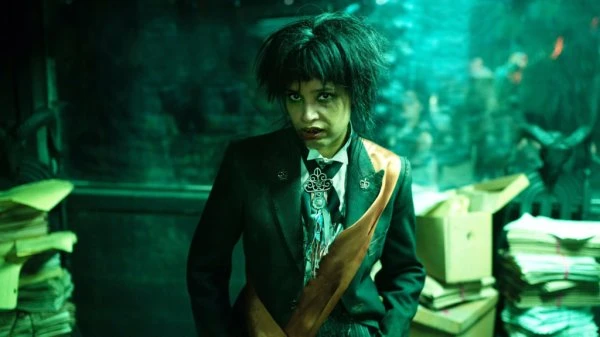
As for the demons, the only major face to return is Beelzebub, the Grand Duke of Hell. Except that they're not actually using their original face, having picked a rather gorgeous new one in the form of Shelley Conn (Bridgerton, Terra Nova), replacing series one's Anna Maxwell Martin. On the flip side, there are several actors returning from the first series in new roles, including Miranda Richardson (Blackadder II, Merlin) as Shax, Crowley's replacement as Hell's representative on Earth, and Reece Shearsmith (Psychoville, Inside No. 9) as upwardly-mobile demon Furfur. Both appeared in the first series, Richardson as the recurring character Madame Tracey, and Shearsmith in a brief role as some playwright named Bill.
Nina Sosanya (Last Tango in Halifax, Casanova) and Maggie Service (Red Dwarf, Hyperdrive) play the imaginatively named Nina and Maggie, two shop owners on the same street as Aziraphale's bookshop, whose tenuous romance forms a running plotline through the series. Both had previously appeared in the first series as diabolical sisters of the Chattering Order of St. Beryl. They get an awful lot more to do here, and it's certainly less distracting than having Richardson appear in a new and equally significant role.

Most of the more notable guest stars appear in the “minisodes,” flashback sequences by additional writers, which are woven throughout the main narrative (Which actually makes them episodes, in the classic sense, but there we are.) “A Companion to Owls” is by Finnemore, and feels the most essential to the series. Being Hell's representative on Earth, Crowley seems to have stood in for the Devil in most of his actual Biblical appearances, and here both he and Aziraphale are directly involved in the Book of Job. It's something of a family reunion, as Tennant stands alongside fellow Doctor Who and father-in-law Peter Davison as Job, and playing Job's son, his own son Ty Tennant (House of the Dragon). Joining them is comedian Andi Osho (Death in Paradise, Lights Out) as Job's wife Sitis, actually getting a name here, rather than in the Bible. The events of the Book of Job are presented exactly as appallingly as they truly are, with Finnemore being bang on as he dismisses the entire debacle as nothing more than God's attempt to win a bet with Satan. It's also a turning point for Aziraphale's relationship with Heaven, as he finally accepts that obeying God and doing the right thing are not necessarily the same.
Within the third episode is “The Resurrectionists” by Cat Clarke (Ten Percent), another educational adventure for Aziraphale as he and Crowley get caught up with a young bodysnatcher in nineteenth century Edinburgh. Abigail Lawrie (Tin Star, The Casual Vacancy) gives a fine performance as Elspeth, forced to dig up bodies to sell to surgeons to make money to live, while Sean Biggerstaff, best known to fans of the Harry Potter films, has some gravitas as the surgeon Mr. Dalrymple. The final minisode, “Nazi Zombie Flesheaters,” is woven through episode four and is sensible as it sounds. Writer, actor and magician Andrew Nyman (Dead Set) lends his skills as one half of the creative team, and was doubtless responsible for the plotline of Aziraphale learning sleight of hand. The second half is Jeremy Dyson of The League of Gentlemen, working together with Reece Shearsmith once again, and bringing back fellow Leaguers Mark Gatiss and Steve Pemberton as the nefarious Nazis from the first series. It's a bit of fluff, but entertaining.
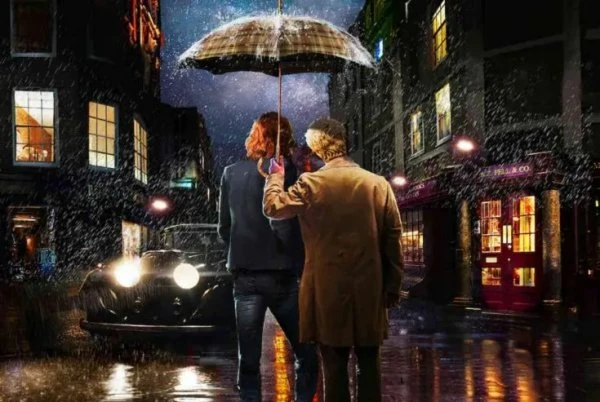
While it doesn't reach the heights of the first series, Good Omens 2 is a welcome return for our favourite angel/demon will-they/won't-they duo. While a smaller story, it expands on their long, long lives and the complexities of the mythic universe in which they live. While it's a little indulgent, it's no less moving for it, leading towards a triumphant and romantic ending... although perhaps not for who we were expecting. While it's strange to have a version of Good Omens in which Pratchett's input has been negligible, Gaiman and Finnemore work well together and I'd be keen to see them doing so again. Pratchett's presence is still felt though, through some little references that serve to remind us that he is part of this creation. It's also him we can blame for having Buddy Holly's classic “Everyday” being stuck in our heads for weeks after watching the series. While it's hard to escape the fact that is a filler series tiding us over for the big events of the finale, it's still a wonderful way to spend six hours.
Published on August 14th, 2023. Written by Daniel Tessier for Television Heaven.


